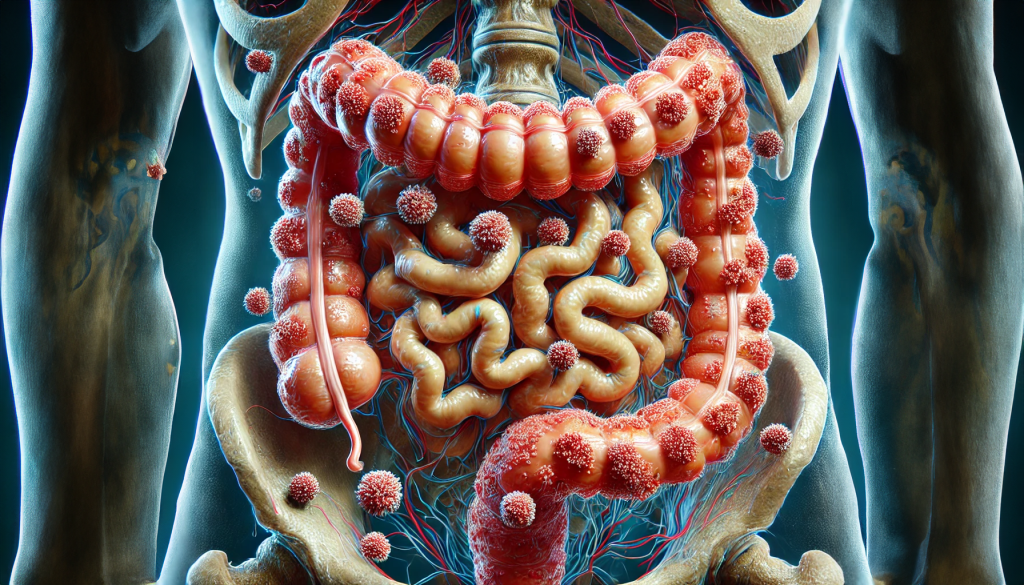Clostridium Difficile
Clostridium difficile (C. difficile or C. diff) is a bacterium that can cause infection in the bowel, leading to symptoms such as diarrhoea, abdominal pain, and fever. It primarily affects individuals who have recently been on antibiotic treatments and can easily spread to others. While it can lead to serious health problems in some cases, most infections are treatable with specific antibiotics.
Symptoms of a C. difficile Infection
C. difficile symptoms typically occur during or shortly after a course of antibiotics and can include:
- Watery diarrhoea, which may be bloody
- Abdominal cramps and pain
- Nausea
- Signs of dehydration, such as dry mouth and decreased urination
- Fever of over 38°C (100.4°F)
- Loss of appetite and weight loss
In severe cases, complications may arise, such as bowel damage or severe dehydration, leading to drowsiness, rapid heart rate, confusion, or fainting.
Who Is at Risk?
Individuals at higher risk of C. difficile infections include:
- Those recently treated with broad-spectrum or long-term antibiotics
- Long-term hospital or care home residents
- Individuals over 65 years old
- People with underlying conditions like cancer, inflammatory bowel disease (IBD), or kidney disease
- Individuals with weakened immune systems due to treatments like chemotherapy or conditions such as diabetes
- People taking proton pump inhibitors (PPIs)
- Individuals who have undergone digestive system surgery
When to Seek Medical Advice
If you suspect a C. difficile infection, avoid visiting your GP surgery in person to prevent spreading the infection. Instead, call your GP or NHS 111. Immediate medical attention is recommended if:
- You experience persistent diarrhoea after antibiotics
- You have bloody diarrhoea
- You develop severe abdominal pain, fever, rapid heart rate, or signs of dehydration
- You are confused, drowsy, or produce little to no urine
Diagnosis and Treatment
Diagnosis typically involves:
- Stool tests to detect C. difficile bacteria
- Blood tests to assess infection severity
- Hospital tests or scans to evaluate bowel damage
Treatment options may include:
- Stopping the antibiotics causing the infection
- Taking a different antibiotic to target C. difficile for 10-14 days
- Surgery to remove damaged bowel sections for severe cases
Most people recover within one to two weeks, though symptoms may recur in some cases.
Self-Care and Prevention Tips
Do:
- Finish your entire course of prescribed antibiotics.
- Stay hydrated and consume plain foods like soup, rice, or pasta.
- Take paracetamol for pain or fever.
- Wash your hands and clean surfaces regularly.
- Stay home until 48 hours after your last diarrhoea episode.
Don’t:
- Avoid anti-diarrhoeal medication as it can prevent clearing the infection.
Your GP may monitor your progress and repeat treatment if symptoms recur.
Transmission of C. difficile
C. difficile bacteria are present in the digestive system of approximately 1 in 30 healthy adults but are usually kept under control by other bowel bacteria. Antibiotics can disrupt this balance, allowing C. difficile to multiply and release toxins, causing illness.
The bacteria can spread easily, as they are shed in diarrhoea and form resilient spores that survive on hands, surfaces, and clothing for long periods.
Preventing the Spread of C. difficile
- Stay home until at least 48 hours after symptoms clear.
- Wash hands frequently with soap and water, avoiding bar soap, flannels, or nail brushes.
- Clean contaminated surfaces thoroughly with a bleach-based cleaner.
- Avoid sharing towels or flannels.
- Wash contaminated clothing and sheets separately at high temperatures.
- Follow hospital visitor guidelines and avoid visiting if you are unwell or have had diarrhoea.
By taking proper precautions and practicing good hygiene, you can reduce the risk of spreading or contracting C. difficile infections.







